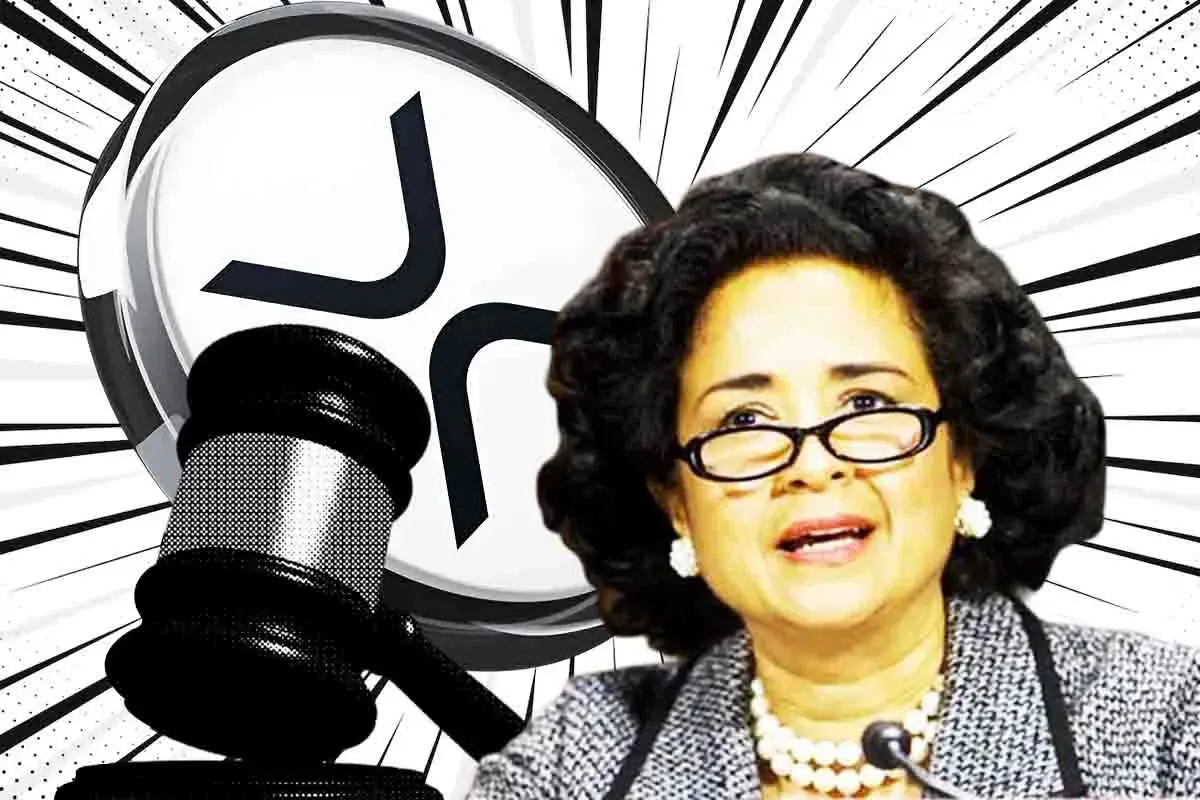U.S. District Judge Analisa Torres has rejected a joint proposal that sought to reduce Ripple’s penalty to $50 million and eliminate a permanent injunction.
The decision, issued Thursday, underscores the court’s unwillingness to let private negotiations circumvent its final judgment, highlighting ongoing tensions in one of crypto’s most consequential legal showdowns.
Judge Torres made it clear that the private settlement agreement reached by Ripple and the SEC does not override the court’s binding verdict.
In her ruling, she emphasized that dissolving the injunction, originally imposed to restrict Ripple’s future institutional sales of XRP, can only occur as part of concluding an appeal process, not as a separate agreement negotiated outside court oversight.
This ruling comes at a pivotal moment, as both Ripple and the SEC were seeking to draw the years-long case to a close. Instead, Torres’ decision keeps the dispute alive, forcing both sides to reconsider their next moves.
Also Read: Just In: Ripple’s Hopes Dashed as Judge Refuses to Lift XRP Restrictions in SEC Lawsuit
Ripple’s CLO and Legal Experts Clarify Case Scope With Good News
Following Judge Torres’ decision, legal experts weighed in on the matter. Particularly, prominent community commentator Vet stated that the lawsuit is now exclusively focused on Ripple’s actions, with XRP itself no longer under legal scrutiny.
This interpretation was echoed by Ripple’s Chief Legal Officer, Stuart Alderoty, who confirmed that Judge Torres’ decision leaves two pathways: either proceed with the SEC’s appeal or agree to dismiss the case under the court’s existing terms.
“With this, the ball is back in our court. The Court gave us two options: dismiss our appeal challenging the finding on historic institutional sales, or press forward with the appeal,” Alderoty said.
Crucially, Alderoty stressed that the judge’s ruling does not alter XRP’s standing as a non-security, a legal conclusion Torres reached in July 2023 when she issued a landmark summary judgment stating that XRP’s secondary market sales do not constitute investment contracts.
“Either way, XRP’s legal status as not a security remains unchanged. In the meantime, it’s business as usual,” he concluded.
That precedent-setting decision has not been challenged by the SEC, effectively cementing XRP’s regulatory status in the U.S.
Ripple’s Institutional Sales Remain at Center of Dispute
Since Torres’ summary judgment, the remaining litigation has zeroed in on Ripple’s institutional and programmatic sales of XRP, which the SEC contends violated securities laws before the ruling.
While the SEC agreed last month to drop its appeal regarding programmatic sales transactions, largely involving retail investors through exchanges, Ripple has sought to end the case on its terms, proposing a $50 million fine and removal of the injunction.
Judge Torres’s refusal to amend her final judgment deals a blow to Ripple’s attempt to negotiate a more favorable conclusion.
Looking Ahead
Judge Torres’ rejection of the proposed settlement highlights the unique complexities of crypto litigation in the U.S., where regulatory uncertainty has often led to protracted court battles.
Ripple’s strategy of aggressively fighting the SEC’s allegations has distinguished it from other firms that opted for settlements early on, positioning the company as a leader for crypto’s legal standing in America.
Looking ahead, Ripple and the SEC must decide whether to continue litigating or find a path to resolve the remaining issues within the confines of the court’s existing ruling. For now, one thing remains clear: XRP’s status as a non-security stands unchallenged.
Also Read: XRP Ledger’s New DEX Is Off-Limits Unless You’re a Verified Institution
